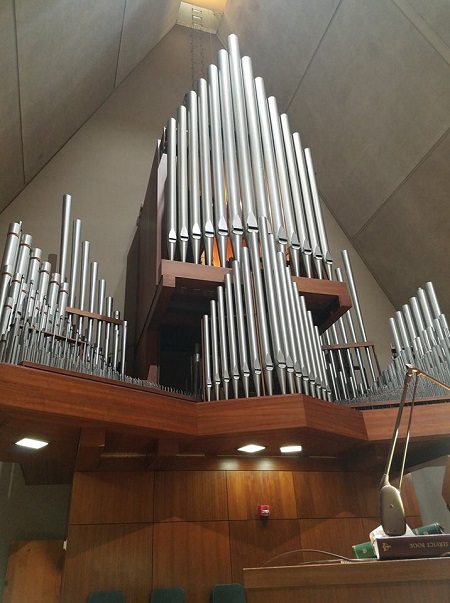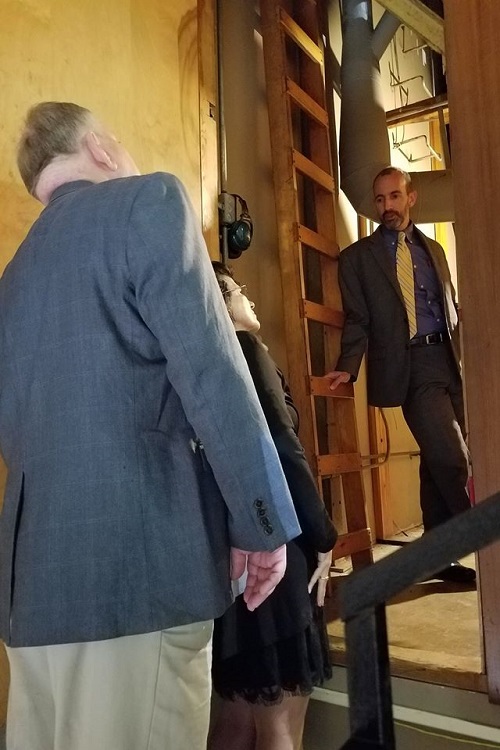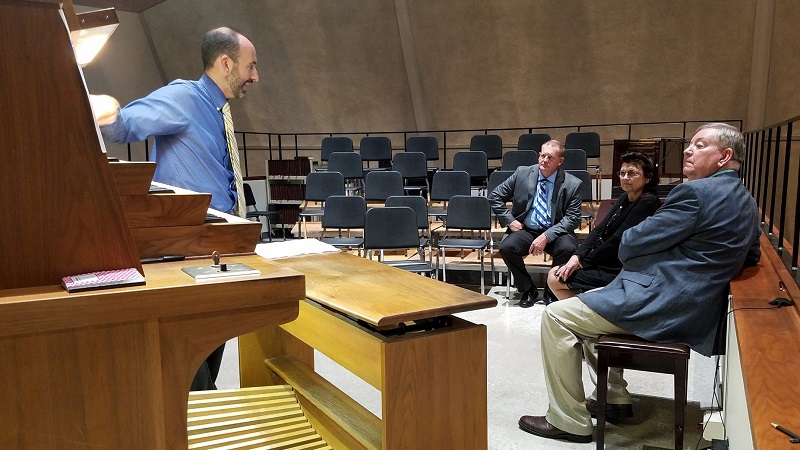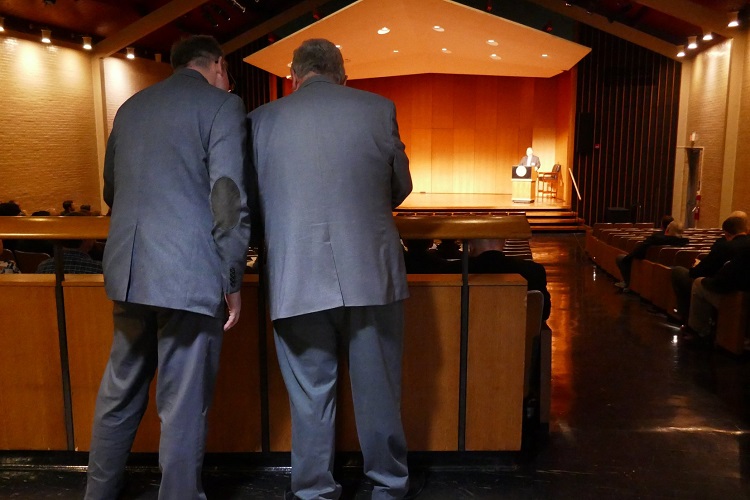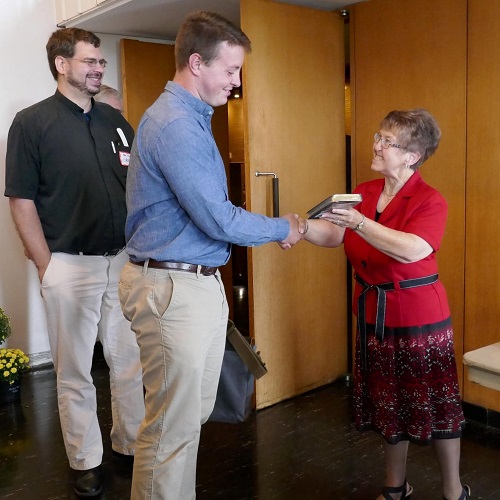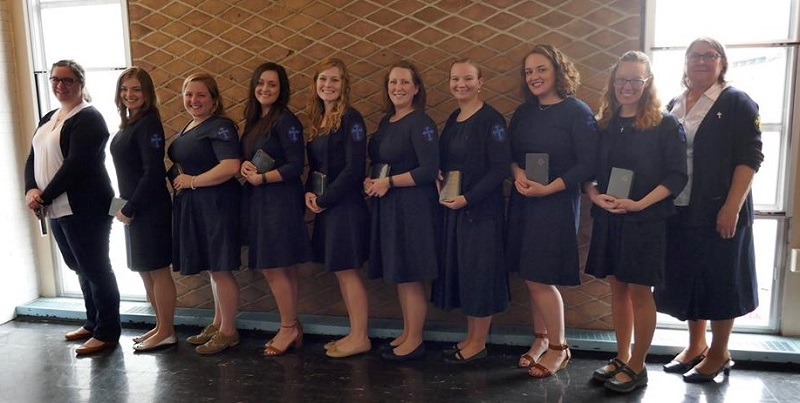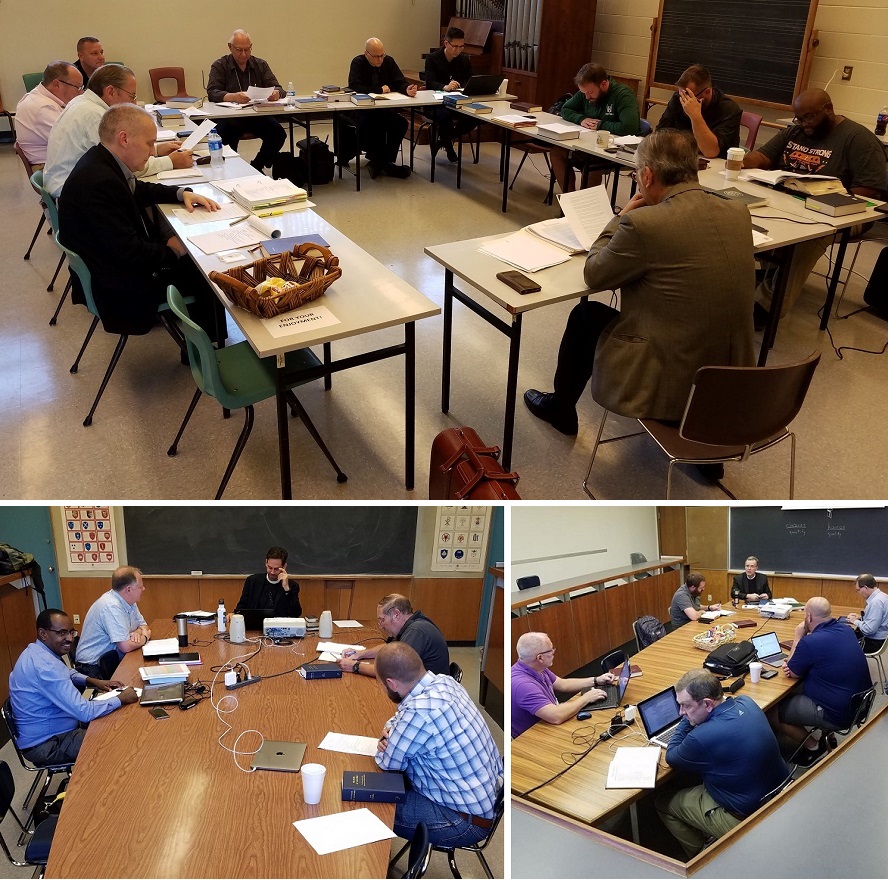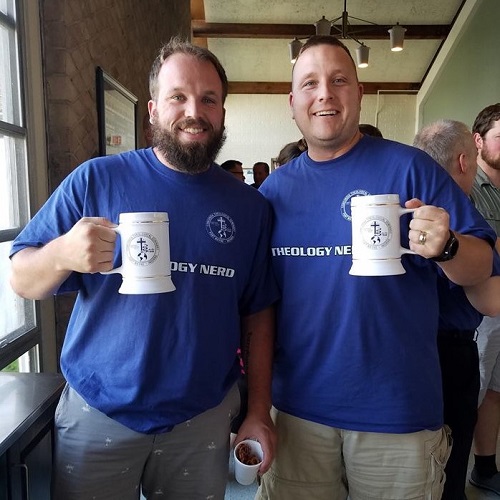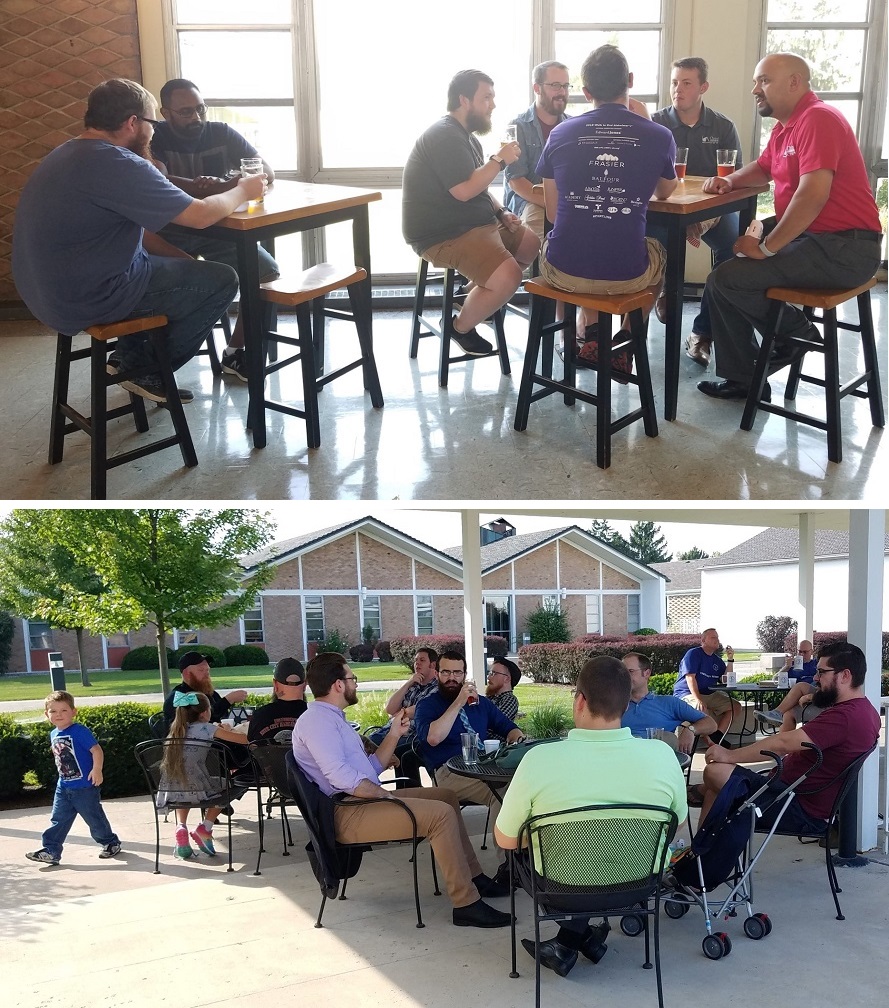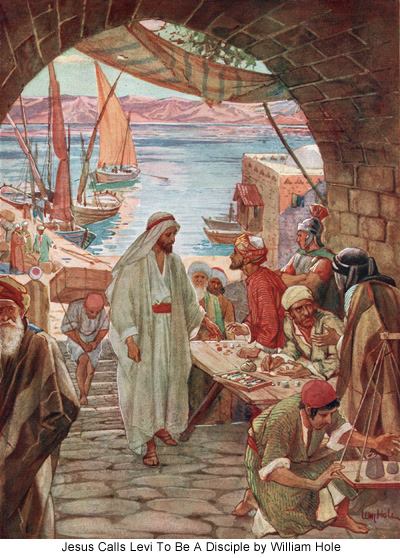
On August 30, the Rev. Professor Ryan M. Tietz became Dr. Tietz, successfully defending his dissertation “The Deliberately Delayed Eschatological Vision: The Hermeneutical and Theological Function of Isaiah 30” and earning his doctorate from Trinity Evangelical Divinity School in Deerfield, Illinois. In his dissertation he argued that Isaiah 30 functions as a mirror text for the tension in the delay of salvation, especially in Isaiah 30:18:
Therefore the Lord waits to be gracious to you,
and therefore he exalts himself to show mercy to you.
For the Lord is a God of justice;
blessed are all those who wait for him.
Dr. Tietz’s interest in Isaiah goes back to his days as a seminarian, when he took a course on Isaiah 1-39 and discovered how “horribly complex” it is. “I’m convinced Isaiah is bad for your spiritual health,” Dr. Tietz said. “The moment I think I know what’s going on, I discover something new was meant. But seriously, I enjoy getting into the vividness and complexity of Isaiah and his eschatology. One of my biggest interests is how Isaiah moves us from creation to the new creation, and the tension of what it means to wait for God. Frankly,” he added, “that’s what I love about what I do.”
The Assistant Professor of Exegetical Theology first came to Concordia Theological Seminary (CTSFW), Fort Wayne, in 2015. He had been working in Chicago as an interim pastor and adjunct professor at Concordia University Chicago, teaching courses in Theology and Hebrew, when Academic Dean Rev. Dr. Charles A. Gieschen asked if he’d be open to an interview at the Seminary. He’s not the only one who’s happy he said yes. “He’s been a wonderful teacher in Old Testament as well as colleague,” Dr. Gieschen said of Dr. Tietz. “Along with the entire faculty, I rejoice in his successful completion of this Ph.D. program and am confident that his exemplary academic achievements will bear much fruit that will benefit our students and the wider church for many years to come.”
To learn more about Dr. Tietz and to view some of his written work, as well as recordings of his lectionary podcasts and other presentations, click HERE. For more information about all the faculty serving at CTSFW, visit www.ctsfw.edu/faculty.
When writing a news release, a common difficulty is having to edit out some of the details in order to make it fit into a shorter format. On this occasion, I had to cut out much of my short interview with Dr. Tietz on his newly earned PhD. Here’s some of the interview that didn’t make the cut:
Why did you become a pastor?
“For the longest time I was convinced I was going to be a lawyer. But I’ve always had an interest in human care and service. Then while studying for my M.Div.” at Concordia Seminary in St. Louis “I was convinced I would do Chinese mission ministry. Then I fell into hospital chaplaincy.”
Why did you come to work at CTSFW?
(Laughs) “Because I never wanted to. No sooner was I comfortable at Chicago River Forest when out of nowhere I got an email from Dr. Gieschen asking me to do an interview.”
He went on (my notes here get a little choppy):
“It’s been a fun discovery. The academic integrity. In the first year/first faculty meeting I remember thinking ‘What am I doing here?’ Surviving the learning curve was hard. But I couldn’t be happier. I’m still surprised. I’m the luckiest guy in the world. I’ve been spoiled rotten. Five years ago I would have laughed if someone told me I was going to be working at CTS and that I’d like it.”
What is your favorite thing about teaching at CTSFW?
“Bridging the gap between Old Testament exegesis and pastoral care. I still think of myself as a hospital chaplain.” Note: here in Fort Wayne Dr. Tietz does hospital visits once a month through his local church, Emmanuel. “It’s one thing to do academic theology and another to do practical. We had a discussion in class the other day: how do I preach justice issues? How do I have that conversation in a congregation?”

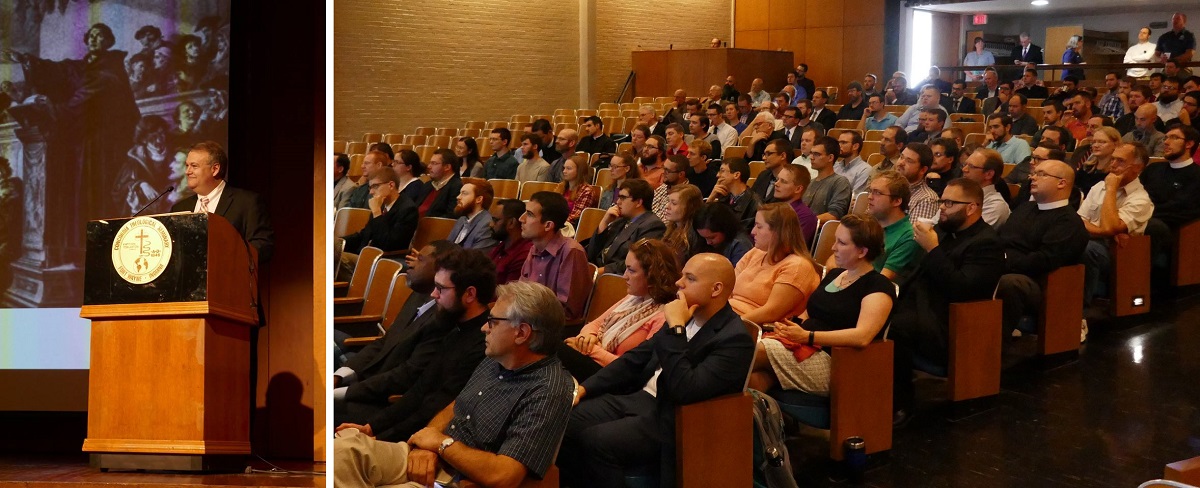
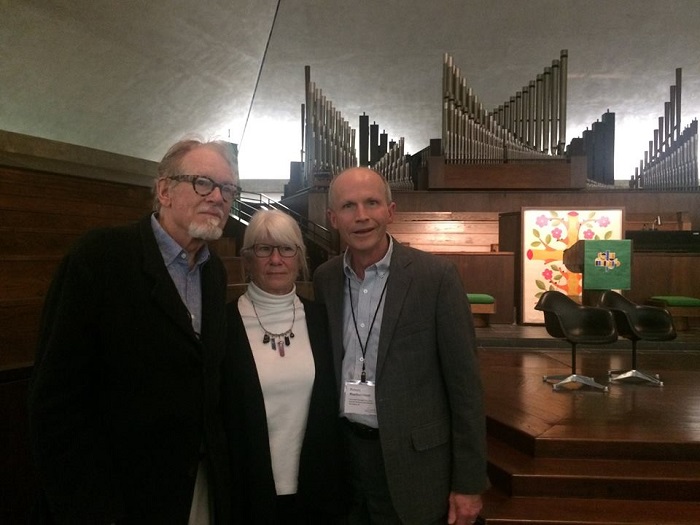 Professor Roethemeyer, Director of our library and Associate Professor of Pastoral Ministry and Missions, was invited to participate in a National Symposium on Design, Community, and Preservation in Columbus, Indiana, on September 27-28. A highlight for him was the opportunity to meet and interact with Eero Saarinen’s son and daughter, Eric and Susan. Professor Roethemeyer is pictured to the right of the Saarinen siblings at North Christian Church in Columbus, a church desig
Professor Roethemeyer, Director of our library and Associate Professor of Pastoral Ministry and Missions, was invited to participate in a National Symposium on Design, Community, and Preservation in Columbus, Indiana, on September 27-28. A highlight for him was the opportunity to meet and interact with Eero Saarinen’s son and daughter, Eric and Susan. Professor Roethemeyer is pictured to the right of the Saarinen siblings at North Christian Church in Columbus, a church desig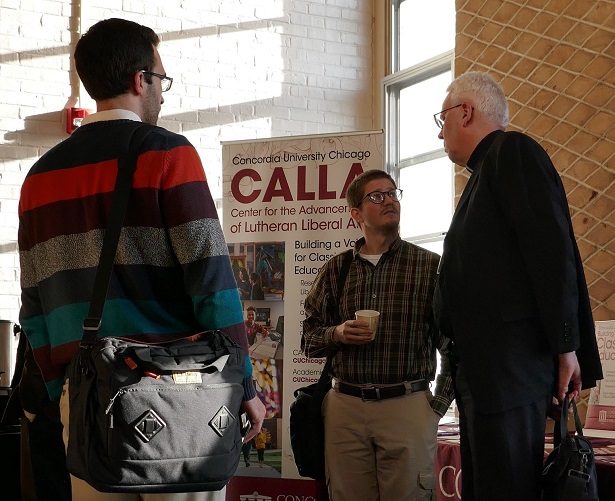
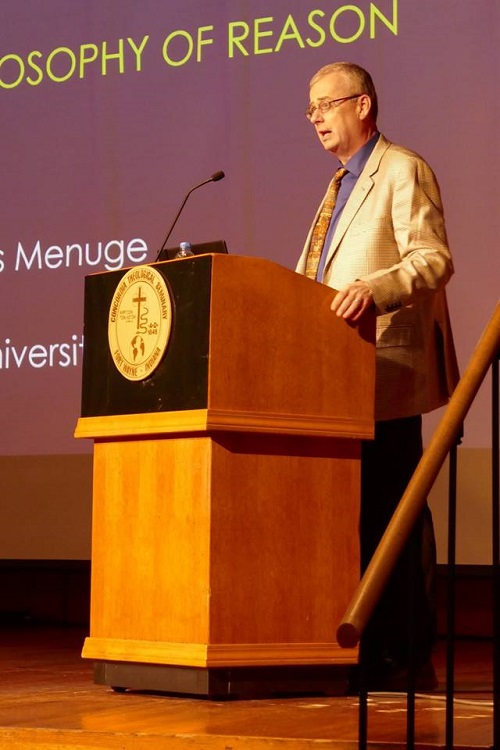
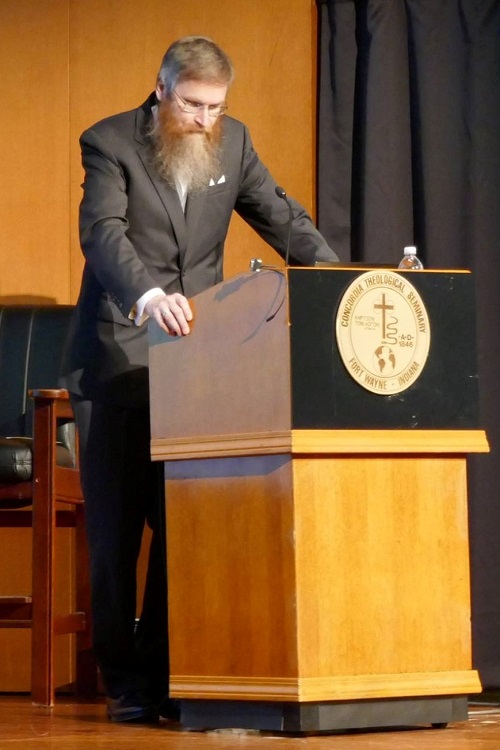
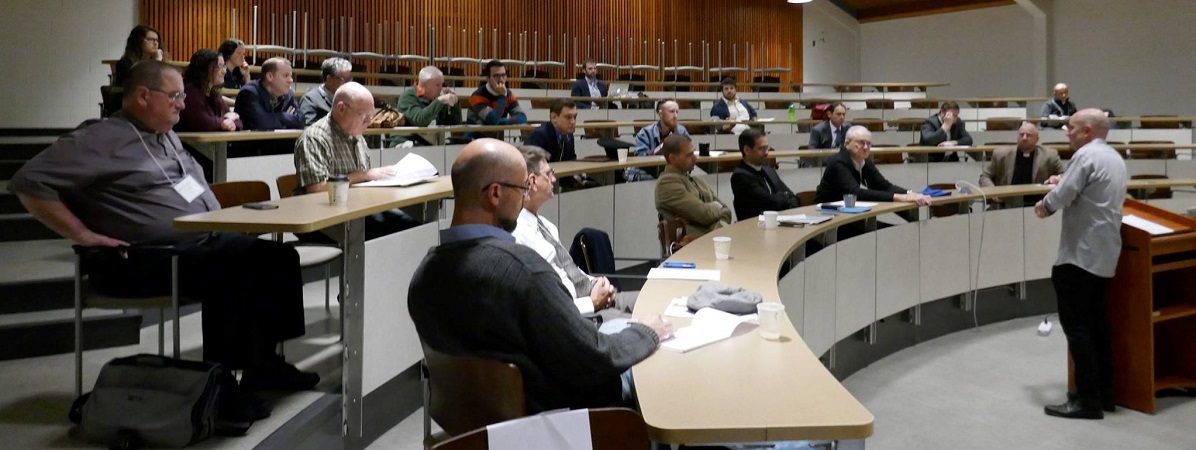

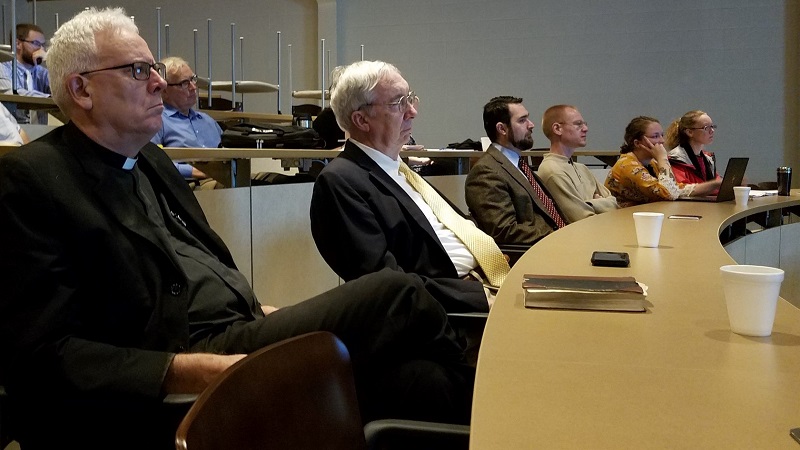
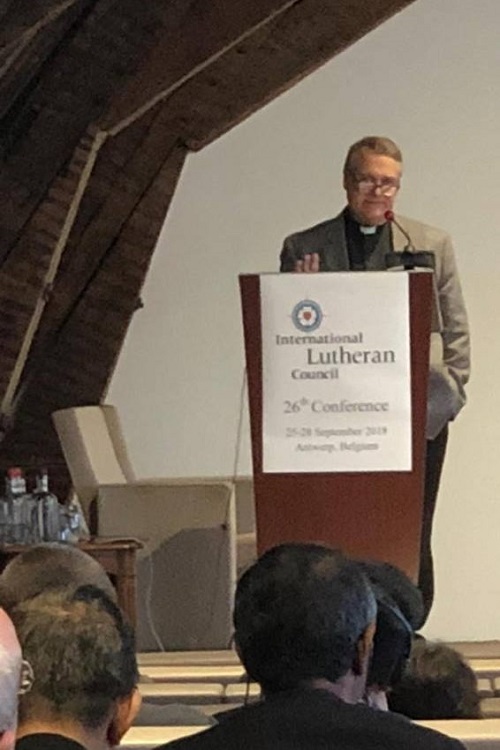 President Rast presented at the International Lutheran Council (ILC) World Conference today in Antwerp, Belgium. This morning the ILC welcomed seventeen new church bodies into membership, ten from Africa, three from Europe, and four from Asia, bringing the total number of church bodies in the ILC to 54, now representing 7.15 million Lutherans.
President Rast presented at the International Lutheran Council (ILC) World Conference today in Antwerp, Belgium. This morning the ILC welcomed seventeen new church bodies into membership, ten from Africa, three from Europe, and four from Asia, bringing the total number of church bodies in the ILC to 54, now representing 7.15 million Lutherans.